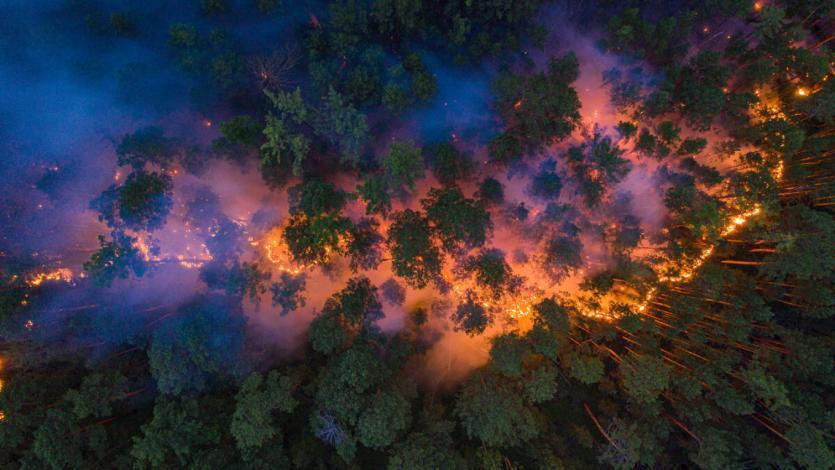Greenpeace says most of the wildfires in Siberia are started by humans, in "places where people live or conduct economic activities as well as near roads and on the banks of rivers. Photo:Greenpeace Russia
The Siberia Fires – How Disastrous Were They?
By Patryk Krych | The World Daily | AUGUST 3rd 2020
It’s been estimated that since the start of 2020, fires have decimated well over 20.9 million hectares of land in Russia. The majority of this is in Siberia, as a cause of the major fires that tore through the tundra region.
Severe blazes in usually freezing environments aren’t entirely unheard of. Back in the months of June, July and August of 2019, fires within the Arctic Circle had ended up pumping somewhere around 173 million tonnes of carbon dioxide into the atmosphere. Over the course of the entire year, it’s been found that somewhere around 182 million tonnes were emitted as a whole, clouding Siberian skies in dark clouds of ash, and smashing the previous 2004 record of 110m tonnes in the process.
The more recent wildfires in Siberia have been found to be equally if not more devastating, however. Following an unusually warm Winter period, likely linked to Climate Change, the fire season had started early in Russia. A reading of more than 38° Celsius in the Siberian town of Verkhoyansk was found to be the hottest temperature on record within the Arctic Circle.
According to Greenpeace International, the 20.9 million hectares of land that had been scorched by the fires since the start of the year covers an area larger than Greece. Between April 21 and July 21, satellites had detected 27,461 fires in Krasnoyarsk, which, according to data observed by Global Forest Watch, has lost 9.8% of its tree cover since the year 2000.
“Russia’s sprawling Siberia region has become a climate hotspot, heating up much faster than the rest of the planet,” said Grigory Kuksin, Wildfire Unit Head at Greenpeace Russia. “This summer has already brought extreme heat waves, oil spills caused by thawing permafrost, and raging forest fires – what next before we finally act on climate?”
With the coronavirus pandemic crisis at hand, several concerns were raised by how the smog of ash may affect nearby residents, especially those suffering from respiratory conditions, or from the virus itself. Strong evidence had been put forward that such air pollution may not only have detrimental impacts to the body’s ability to fight off the illness, but that it may also lead to an overall worsening of the symptoms.






